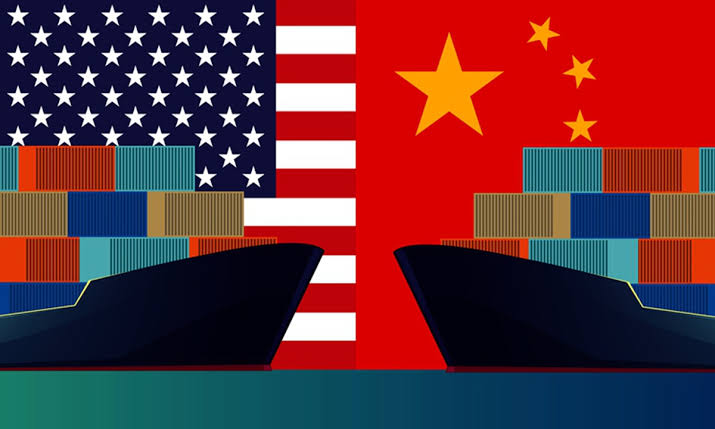In the dynamic realm of international economics, last week’s headlines showcased a stark contrast in strategies as China unveiled measures to welcome foreign investment while the United States tightened its grip on capital outflows. U.S. President Joe Biden’s executive order restricting U.S. investment in China was swiftly followed by China’s Ministry of Commerce introducing enhancements to its Qualified Foreign Limited Partnership policy, signaling an open invitation to global investors. As we dissect these divergent approaches, it becomes apparent that China’s embrace of foreign capital is a far more promising path for fostering economic growth and innovation.
Of the two initiatives, China’s decisive stride to open up its investment channels should be lauded for its potential to unlock the intricate puzzle of the world’s second-largest economy. Among the most welcoming aspects of China’s new guidelines is the comprehensive facilitation mechanism for foreign exchange management. This step significantly reduces the inherent foreign exchange risk and champions the gradual de-dollarization of trade. This move aligns with contemporary economic diversification efforts and ultimately encourages a more stable global financial landscape. When uncertainties in foreign exchange management are alleviated, investors are more inclined to seize opportunities, facilitating a more fluid and responsive investment environment.
China’s adept maneuvering is also visible in the shortening of its negative list for foreign investment, primarily targeting the digital and clean energy sectors. This strategic alignment is evident in the world’s accelerating transition towards sustainability and technological advancement. Notably, China’s digital economy has often showcased a level of maturity that places it ahead of its Western counterparts, making collaborative ventures in these sectors particularly lucrative. Cooperation in these spheres not only presents a competitive edge but also propels the global community towards shared sustainable objectives.
One of the most compelling dimensions of China’s strategy lies in the realm of research and development (R&D) facilitation. This fervent push towards innovation aims to catalyze high-end manufacturing by harnessing the potential of cutting-edge technologies such as AI and quantum computing. The impressive surge in China’s gross domestic expenditure on R&D, crossing the significant threshold of 3 trillion yuan ($411.96 billion), demonstrates the nation’s unwavering commitment to cultivating intellectual capital. The result? Companies like BYD and Hygon Information Technology are investing heavily in R&D to nurture proprietary products, relinquishing the historical reliance on foreign technology. This pivot towards self-sufficiency showcases a determined ambition to lead rather than follow, strengthening China’s position in the global innovation race.
However, lurking beneath the surface of this promising narrative is the shadow cast by the U.S. executive order and its potential ramifications. While proponents of the restrictions assure us that the investment ban is primarily geared towards future incremental investments and the preservation of existing ones, the unsettling political climate makes one hesitant to fully embrace this narrative. With a volatile U.S. election year looming, policy shifts are often molded by political expedience rather than objective economic considerations.
At the heart of Biden’s executive order lies the notion of curbing dual-use technology that could have both civilian and military applications. Yet, the wide-ranging net cast by this notion grants authorities the power to stifle investments in sectors pivotal to China’s digital growth, such as AI, quantum technology, and semiconductors. While Biden might disavow any intent to hinder China’s march towards prosperity, the reality remains that these restrictions inevitably stunt China’s technological advancement, adversely impacting its progress towards an advanced and digitally fueled society.
To preserve national security, US President Joe Biden has imposed additional restrictions on investments in China’s sophisticated technology industries. President Biden issued an executive order late Wednesday prohibiting US investments in several important Chinese technology industries. The proposed limits would limit US private equity and venture capital firms’ investments in Chinese artificial intelligence, quantum computing, and semiconductors, as well as joint ventures. The new regulations, which will also apply to corporations in Hong Kong and Macau, will go into force next year. Last October, the Biden administration announced sweeping export limits that prohibit Chinese firms from purchasing advanced chips and chip-making equipment without a license.
The directive is the latest in a series of moves aimed at limiting Chinese access to advanced technology, as described by US National Security Adviser Jake Sullivan as a “small yard, high fence” strategy.
Beijing has said that the US’s policies are intended to stifle its technical growth. China’s trade ministry expressed “serious concern” over the decision on Thursday, saying it “deviates from the principles of fair competition and the market economy that the US consistently advocates” and that Beijing had the right to respond.
It’s crucial to acknowledge that, at present, the restrictions haven’t extended to Chinese electric vehicles, fintech, and biotech. Nonetheless, the ever-present specter of policy shifts in an unpredictable political climate injects a new layer of uncertainty into international investments. This uncertainty, along with the potential spillover effect pressuring Europe and Japan to follow suit, establishes an atmosphere of risk that investors must now navigate with added caution.
In conclusion, the dichotomy between China’s openness and the U.S.’s tightened grip on investment lays bare a critical choice for the international community. While the U.S. aims to safeguard its technological prowess and military interests through executive orders, China’s proactive measures to attract foreign capital and foster innovation position it as an attractive destination for forward-looking investors. China’s strides in mitigating foreign exchange risk, its targeted approach to key growth sectors, and its unrelenting commitment to R&D provide a compelling narrative of a nation poised for continuous growth and development. On the other hand, the U.S.’s apprehension-driven restrictions, regardless of the underlying motives, carry the potential to hinder both nations’ progress in the quest for a greener, technologically advanced global economy. As we navigate these crossroads, it’s worth pondering which path will truly pave the way for a prosperous future.
















